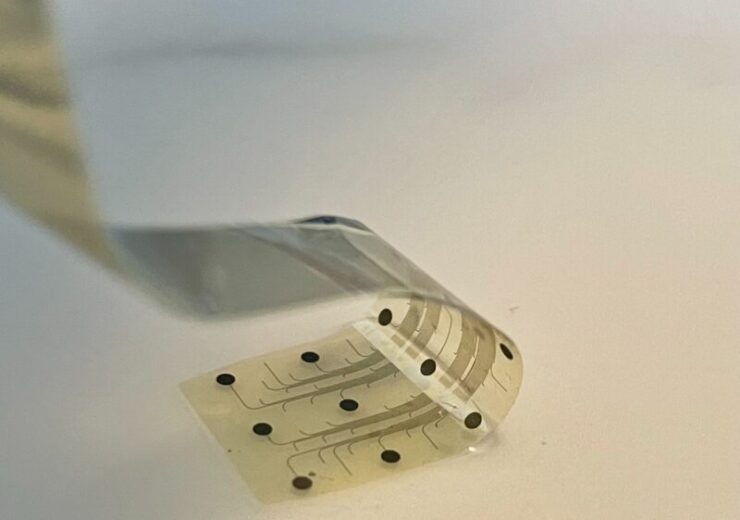The FDA’s BDD covers the graphene-neural platform as an adjunctive therapy for Parkinson’s disease by combining machine learning software that decodes therapy-specific biomarkers and ultra-high signal resolution

INBRAIN Neuroelectronics has developed a graphene-based, high-resolution cortical brain interface. (Credit: Business Wire)
Health technology company INBRAIN Neuroelectronics has received Breakthrough Device Designation (BDD) from the US Food & Drug Administration (FDA) for its Intelligent Network Modulation System.
The FDA’s BDD covers the graphene-neural platform as an adjunctive therapy for the treatment of Parkinson’s disease.
The INBRAIN system uses the two-dimensional substance graphene, which is formed of a lattice of carbon atoms that is only one atom thick.
According to the Spanish health technology company, graphene’s combination of electrical and mechanical properties is suitable for this neurotechnology innovation.
INBRAIN’s neural platform technology combines machine learning software that decodes therapy-specific biomarkers and ultra-high signal resolution.
The platform delivers highly focused, adaptive neuroelectronic therapy that rebalances pathological neural networks.
INBRAIN Neuroelectronics Clinical Affairs head Dan Gnansia said: “Breakthrough device designation from the FDA signifies the potential of the INBRAIN neural platform to further improve the lives of patients with Parkinson’s disease.
“We look forward to working with the agency to help bring this important advance into clinical practice.”
The INBRAIN system has been designated by the FDA as a Breakthrough Device, which entitles the manufacturer to feedback during the regulatory process and priority review by the FDA.
The company’s graphene-neural platform is a semiconductor-derived brain-computer interface (BCI) technology that can modulate and decode brain activity. It uses artificial intelligence (AI) to start adaptive reactions for customised neurological care.
INBRAIN Neuroelectronics CEO and co-founder Carolina Aguilar said: “INBRAIN is dedicated to leveraging new discoveries in materials science and transforming them into safe and effective breakthrough therapy applications.
“We anticipate developing our technology to treat other conditions affecting the central and peripheral nervous systems to make BCI technology relevant in neuro and bioelectronics.”
In July 2021, Inbrain Neuroelectronics teamed up with Merck to jointly develop the next generation of graphene-based bioelectronic vagus nerve therapies for severe chronic diseases.
